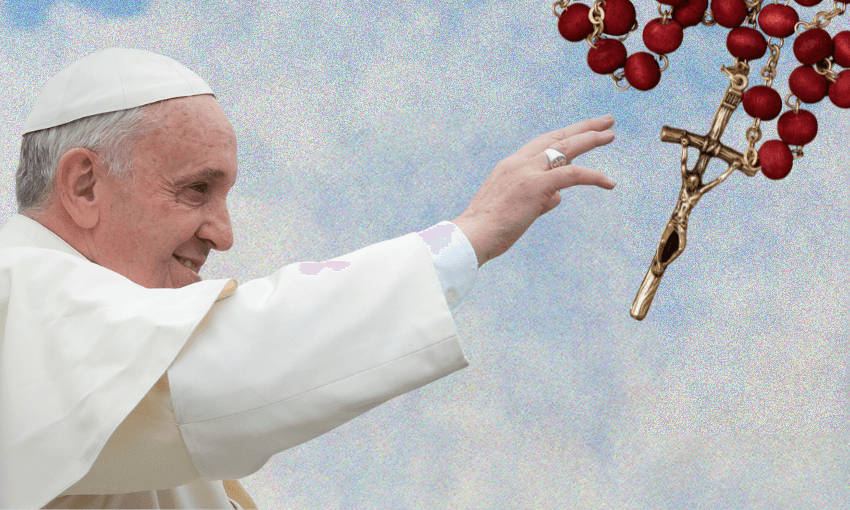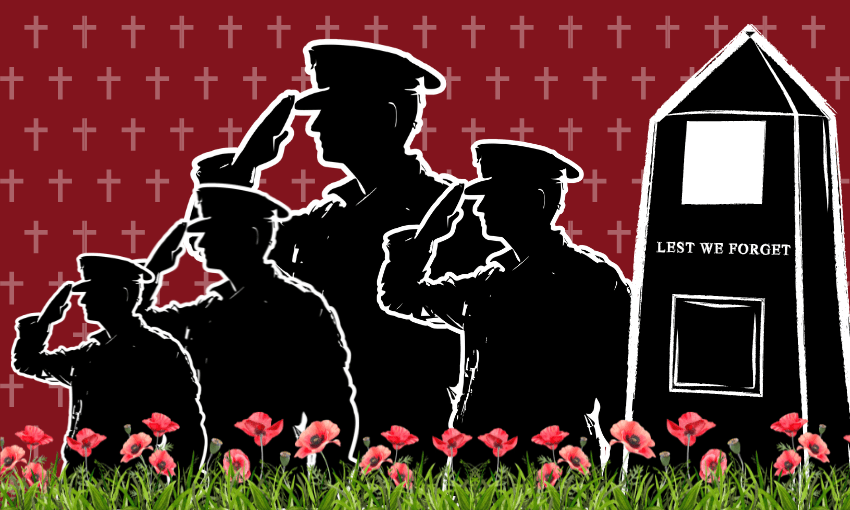The passing of Pope Francis gets one lapsed Catholic wondering if it’s time to bring back the faith.
On a crisp April morning in the Vatican City, under a cloudless sky, Pope Francis and I prayed together. It was hardly a personal moment – every Wednesday the pontiff holds his papal audience, a chance for up to 10,000 pilgrims to pray with the leader of the Catholic church and receive his papal blessing. He zoomed around Saint Peter’s Square on an automated moving platform, then lifted his hands and moved his lips to deliver his benediction, and soon the faces of his followers were flooded with tears.
My reason for being there? I am in no way a devout Catholic, but, like many children, I had Catholicism thrust upon me by way of religious schooling and God-fearing family members. I wasn’t trying to save my seat in heaven, and I certainly wasn’t in Italy (the Vatican City, a country in its own right, is wedged within the capital of Rome) with the goal of ticking this off the bucket list. It just seemed like the proper thing for a faith-curious non-practising Catholic to do, when in Rome.
Religion is certainly a strange thing. On the one (pessimistic) hand, it can sometimes feel like an opportunistic groupthink for people who need to feel a part of something – like when I used to go to youth groups as a teen in a church fitted out like a nightclub, and you’d be in to win a new Xbox if you indoctrinated all your friends. On the other hand, it’s one of the few things in this world that can teach us it’s possible to survive almost anything if you have enough faith.
The spirit of Catholicism in particular can be best summarised by Netflix’s Derry Girls, specifically that scene in which those wee Irish characters chalk up the differences between Catholics and their “friends across the barricade”, the Protestants, on a blackboard. Catholics love Mary, they walk rather than march, their Lord’s Prayer is shorter and most importantly, “Catholics really buzz off statues”. We do enjoy a good statue, it has to be said.
We (can I still refer to Catholics as “we” when, for the last 10 years, my membership has relied only on being baptised?) are also deeply misunderstood people, through our own faults. The church has allowed rampant abuse, its scriptures are too often warped to suit a xenophobic interpretation of the Lord’s teachings and thus, the church has allowed the idea that entire communities are unwelcome, going against the belief that God’s love is unconditional. Jesus wept.
These are usually the factors cited when a Catholic such as myself decides to lapse – we simply don’t have enough faith to even forgive ourselves, or it feels clear that we just don’t fit in. But another truth about Catholicism is that if you are baptised in the Catholic church, you are Catholic for life, and will also likely feel Catholic guilt for life.
So when the death of a pope arrives, the shadows of faith left lurking around the religion-raddled mind begin to bring themselves to the forefront again. Suddenly you recall every prayer ever whispered in school mass. Suddenly you think you need to get yourself to mass again for the first time in years, because it is the most reasonable thing to do at a time such as this.
Pope Francis, in many ways, personified the best of the Catholic church. In his last days he continued his call for a ceasefire in Gaza, and spent much of his papacy promoting peace while maintaining a modest life. His response of “who am I to judge?” when asked about his position on homosexuality in his first year as pope set a new precedent for the church. In 2022, he travelled to Canada to apologise for the church’s role in abuse within residential schools. He criticised “economic colonialism” in Africa, condemned capitalist greed, labelled climate change and the destruction of the natural world a “structural sin”, and frequently advocated for migrants, as well as the sick and poor.
In other ways, he was still just the leader of the Catholic church. Francis’s pledge to confront abuse within the church came undone when in 2015 the Vatican threw its support behind Chilean bishop Juan Barros, accused of covering up clerical sexual abuse. Three years later, the pontiff apologised for the “grave mistake” of defending the bishop and sent the Vatican’s key expert on sex crimes, Charles Scicluna, to Chile to investigate the claims, resulting in the resignation of Barros and two other bishops.
Pope Francis never wavered on the church’s position on abortion – it is a “homicide” carried out by doctors who are “hitmen”, he said in 2024 – and on a few occasions, used a homophobic slur to describe the men he didn’t want trained in the priesthood. Even humanitarians can lack humanity from time to time.
All this to say, it’s hard to keep the faith, and even harder to return to it. A few years ago, chronically online Gen Zers for some reason decided they were really into Catholicism – so much so that the religion became a trend, and rosaries, crosses and images of Mother Mary were all the rage, especially if you were an alt-adjacent girl online. That was cute, but not enough to truly prick at an underlying Catholic shame that can be exploited into belief – you need the death of the Holy Father to achieve that.
Sometimes I feel so jealous of those who can lean so purposefully and confidently into their faith that I think something must have been missing from me when I popped out into the world – a natural born sinner, unable to truly let go and give to God. Maybe it’s all that Catholic guilt coming to the forefront, and I’ll feel quite all right with my role in remembering the pope when his funeral has come and gone. And then I’ll remember I also don’t actually want to be Catholic.
Now, the papal conclave (a name that derives from the Latin “cum clave”, just putting that out there) must decide on a new pope. When the white smoke rises from the Sistine Chapel some weeks from now and a new leader of the Catholic church arrives, hopefully he’ll be someone worth believing in.

